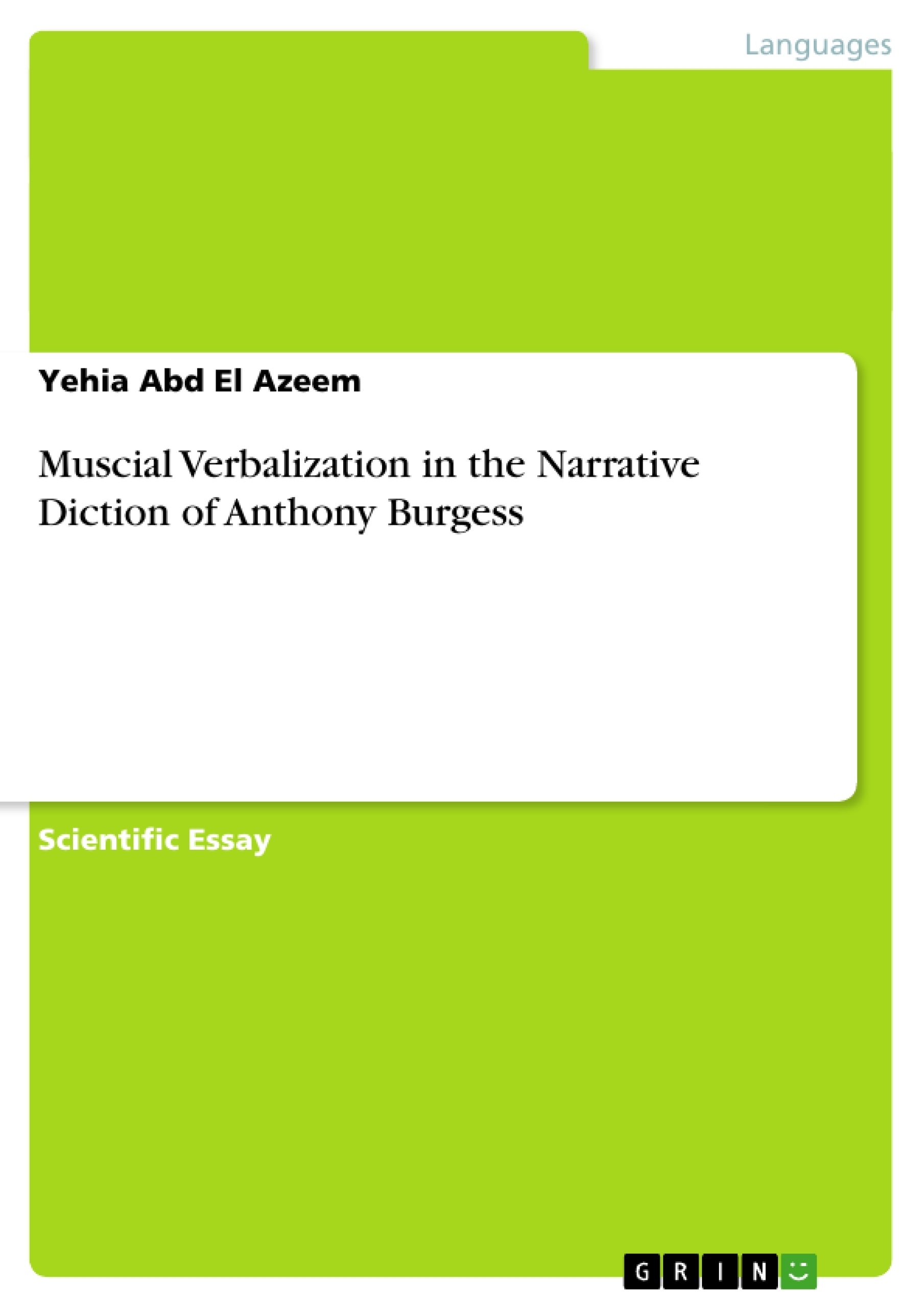Excerpt
Musical Verbalization in the narrative diction of Anthony Burgess The two simple words "to compose" have always and still attribute their tonal commitment amongst their listeners and readers to arousing incidentally a fundamental scene of professionalism through which one could play upon his own imagination by way of placing a pointed stick with its accusative didacticism in a grip of a shaggy complexity, or so far - with motifs of symmetry- could recall the rise and fall of uniformed arms in quest for their synchronous guidance. The aforesaid representative of leadership could easily be conceived to be the conductor of masses (the maestro)–who is as much devoted to the very existence of his stick as the writer to his quill- while the former sense of obedience can however be more fit to be imposed on the playing masses, who in concert (though with different aspirations) have always chosen their instruments by which they are objectified. This is but a regular and conventional reflection on music in its performativity, whose many guises –whether instrumentalists, composers, singers or music commentators- would reassert other artists' (writers, painters, architects...etc.) self- satisfaction of music as to be standing in its own rights, composed, played and improvised within its own premises only and by its –musically oriented- attributers. Oppositely, an author who is at the same time a musician in general and a composer in specific, should be considered as phenomenal –a rarity- who in the realm of this introspection is always placed through regular standards of exercise of musical thoughts and judged according to compositional analogies and verbal music in the process of questioning his unusual sort of literature. Anthony Burgess (1917- 1993) is such a writer who was not only a prolific novelist and a longtime literary critic for The Guardian, but also an accomplished musician, composing more than 250 musical pieces and choral works including a single symphony written between 1930/1931 and librettos written and orchestrated by him. Burgess was self- taught in music particularly, although his professionalism in writing came as concerns his own life conditions, spurring him forward to earn a more profitable career than music could by any means afford. In the process of accentuating Burgess musical sensibilities' to his literature –putting in mind his overwhelmingly domineering attractiveness - conceivably experimented in some of his compositions which in terms of musical appreciation always attentive to their textual correspondence- a musicalization of language through which words and their verbosity deviate from the very common forms of verbal articulations and referential associations should be analytically examined in the favor of discovering the ways in which complex allusions/analogies and technical heterogeneity resonate to a greatest extent to the well- versed readings, taking in account references to a variety of instruments and performers, word signifiers and word subjects. Compelling his parents to buy him a gramophone, he continues explaining in his autobiography the comparative propensity he bore to French as much he would henceforward bear to music, stating that "The fact, that I knew enough French by now to understand the title was a kind of confirmation that music too could be intelligible. And, of course, a truth that still astonishes when we care to remind ourselves of it, music transcended language.” (Waldman, A Great and Sustaining Mystery, 1)
Burgess's individualization of his music in his own texts came as an extended preliminary interaction and reaction he had come through in readings from a number of other modernists who have treated music as well in their own works, mainly James Joyce's "Sirens" episode in Ulysses (1922) in which he exemplified tonal characterizations of heroes' voices and aroused musical issues in his dramatizations of textual contrasts and conflicts within characters' personalities and interests. Among other Modern authors who applied music in Literature, were E.M. Forster, Aldous Huxley, Thomas Mann from whom Burgess intensified his realm of musical propensities in language and has proven himself as a a signhood of centralization and decentralization of sound, silence and noise –in which many writers showed specific dedication- and the auditory basis of language, according to which few others showed their only infatuation of musical theory. Burgess's reference for example to one of Joyce's musical writings mainly, the fantasy of "Circe"(429- 609) which is the extended Night- town episode of Ulysses,comparing it to symphonic development, is a true manifestation of how he felt the role of music and its auditory elements in the literary works of his counterparts;" Circus may be taken as the development section of the symphonic structure which is Ulysses, and here the breakdown of the time, space and probability encourages Joyce to treat plastically material drawn from other chapters." (JoysPrick 17) In the aforesaid example, "plastically material" could be attributed to sonata forms which depend mostly on extending tones and spatiality away from sharp, inflexible subjects that could be tastefully "broken." This very source of diexis offers in many other summaries the imposition of the "fugal"(a polyphonic composition in which many colors are stated successively as a counterpoint) construction of the "Sirens" episode, where barmaids are presented as a "fugal" subject; to which the "answer" is a character and "countersubject" is another character.
[...]
- Quote paper
- Yehia Abd El Azeem (Author), 2013, Muscial Verbalization in the Narrative Diction of Anthony Burgess, Munich, GRIN Verlag, https://www.grin.com/document/280274
Publish now - it's free






















Comments